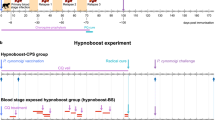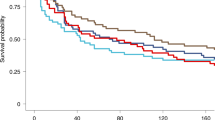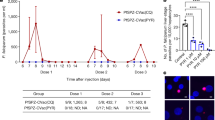Abstract
IN view of the limited success of malaria eradication schemes based on concepts of vector control and chemotherapy, serious efforts are being made to investigate the possibility of developing an antimalarial vaccine. So far two classes of vaccine have been under investigation: (1) an anti-sporozoite vaccine designed to prevent malarial infection by blocking the infectivity of sporozoites introduced by mosquito bite1,2, and (2) vaccines directed against the asexual stages in the blood3–5. Although the potential value of such vaccines is unquestionable, their realisation faces technical problems6. The latest proposition is to induce immunity against the parasite stages which infect the mosquito and by so doing prevent transmission of the disease by the vector. Gwadz has shown that the infectivity of malarious chickens to mosquitoes can be reduced greatly by prior vaccination with formalin-treated or X-irradiated blood infected with the malaria parasite P. gallinaceum7. The number of oocysts (the stage of the parasite developing on the wall of the mosquito gut) in mosquitoes fed on vaccinated chickens was reduced by 95–98% below that recorded in mosquitoes fed unvaccinated birds. To achieve this reduction, chickens were given three weekly intravenous inoculations of a total of 4.5 ml of formalin-treated or irradiated blood. Using the same schedule, but with partially purified gametes of the malaria parasite, we have now reduced the infectivity of malarious chickens to mosquitoes at least 99.9% below control levels. To achieve this reduction we had to use a minimum of 0.1 µl of packed cellular material.
This is a preview of subscription content, access via your institution
Access options
Subscribe to this journal
Receive 51 print issues and online access
$199.00 per year
only $3.90 per issue
Buy this article
- Purchase on Springer Link
- Instant access to full article PDF
Prices may be subject to local taxes which are calculated during checkout
Similar content being viewed by others
References
Nussenzweig, R. S., Vanderberg, J. P., Most, H., and Orton, C., Nature, 216, 160–162 (1967).
Clyde, D. F., Most, H., McCarthy, V. C., and Vanderberg, J. P., Am. J. med. Sci., 266, 169–177 (1973).
Brown, K. N., Brown, I. N., and Hills, L. A., Expl Parasit., 28, 304–317 (1970).
Simpson, G. L., Schenkel, R. H., and Silverman, P. H., Nature, 247, 304–305 (1974).
Mitchell, G. H., Butcher, G. A., and Cohen, S., Immunology, 29, 397–407 (1975).
Miller, L. H., Wld Hlth Org. tech. Rep. Ser. No. 579 Expert Committee on Immunization against Malaria (1915).
Gwadz, R. W., Science (in the press).
Muirhead-Thomson, R. C., Trans. R. Soc. Trap. Med. Hyg., 48, 208–225 (1954).
Author information
Authors and Affiliations
Rights and permissions
About this article
Cite this article
CARTER, R., CHEN, D. Malaria transmission blocked by immunisation with gametes of the malaria parasite. Nature 263, 57–60 (1976). https://doi.org/10.1038/263057a0
Received:
Accepted:
Issue Date:
DOI: https://doi.org/10.1038/263057a0
This article is cited by
-
A dual-antigen malaria vaccine targeting Pb22 and Pbg37 was able to induce robust transmission-blocking activity
Parasites & Vectors (2023)
-
Malaria vaccines: the 60-year journey of hope and final success—lessons learned and future prospects
Tropical Medicine and Health (2023)
-
Genetic diversity in the transmission-blocking vaccine candidate Plasmodium vivax gametocyte protein Pvs230 from the China–Myanmar border area and central Myanmar
Parasites & Vectors (2022)
-
Evaluation of the Pfs25-IMX313/Matrix-M malaria transmission-blocking candidate vaccine in endemic settings
Malaria Journal (2022)
-
Malaria vaccines since 2000: progress, priorities, products
npj Vaccines (2020)
Comments
By submitting a comment you agree to abide by our Terms and Community Guidelines. If you find something abusive or that does not comply with our terms or guidelines please flag it as inappropriate.



